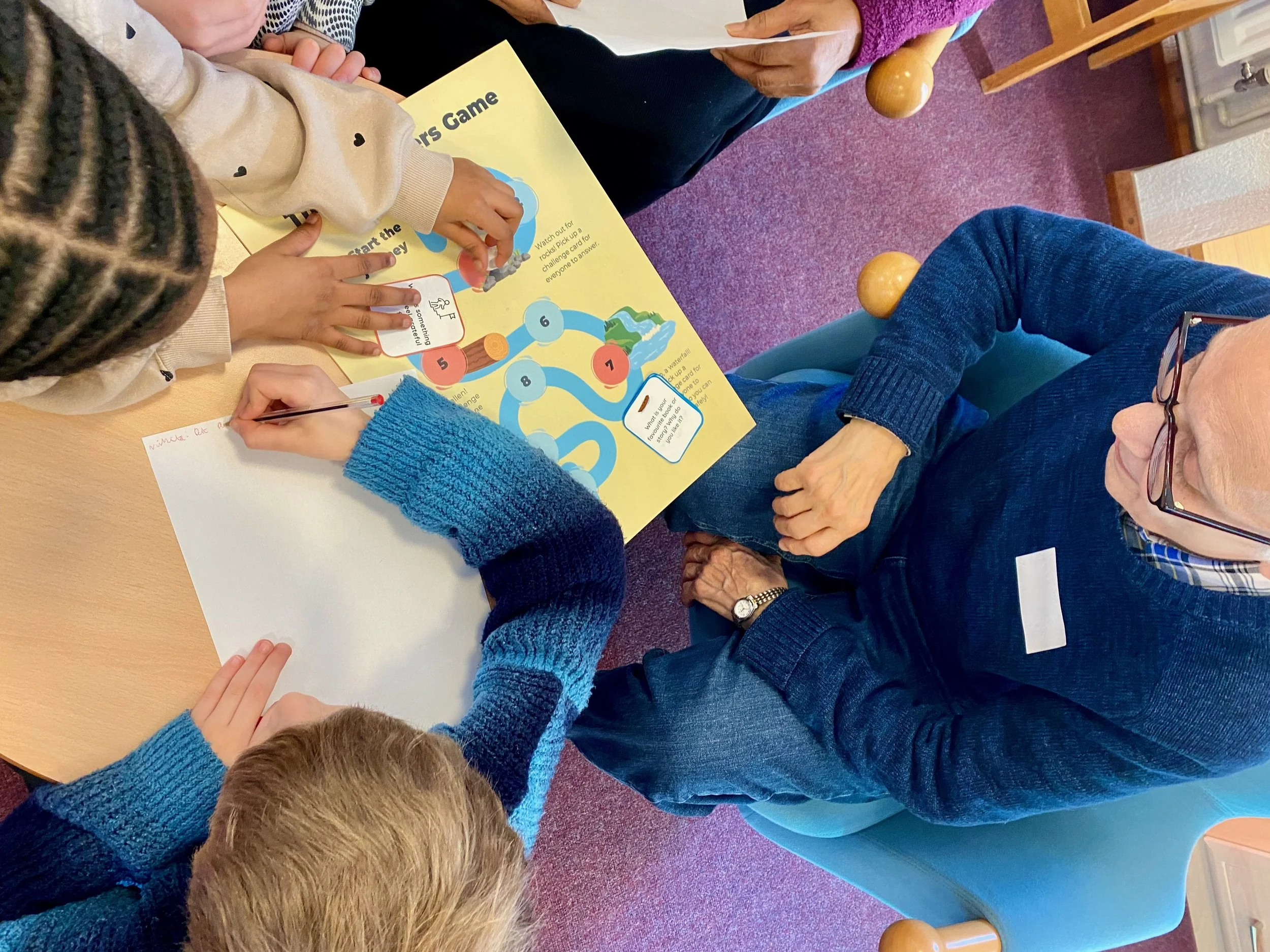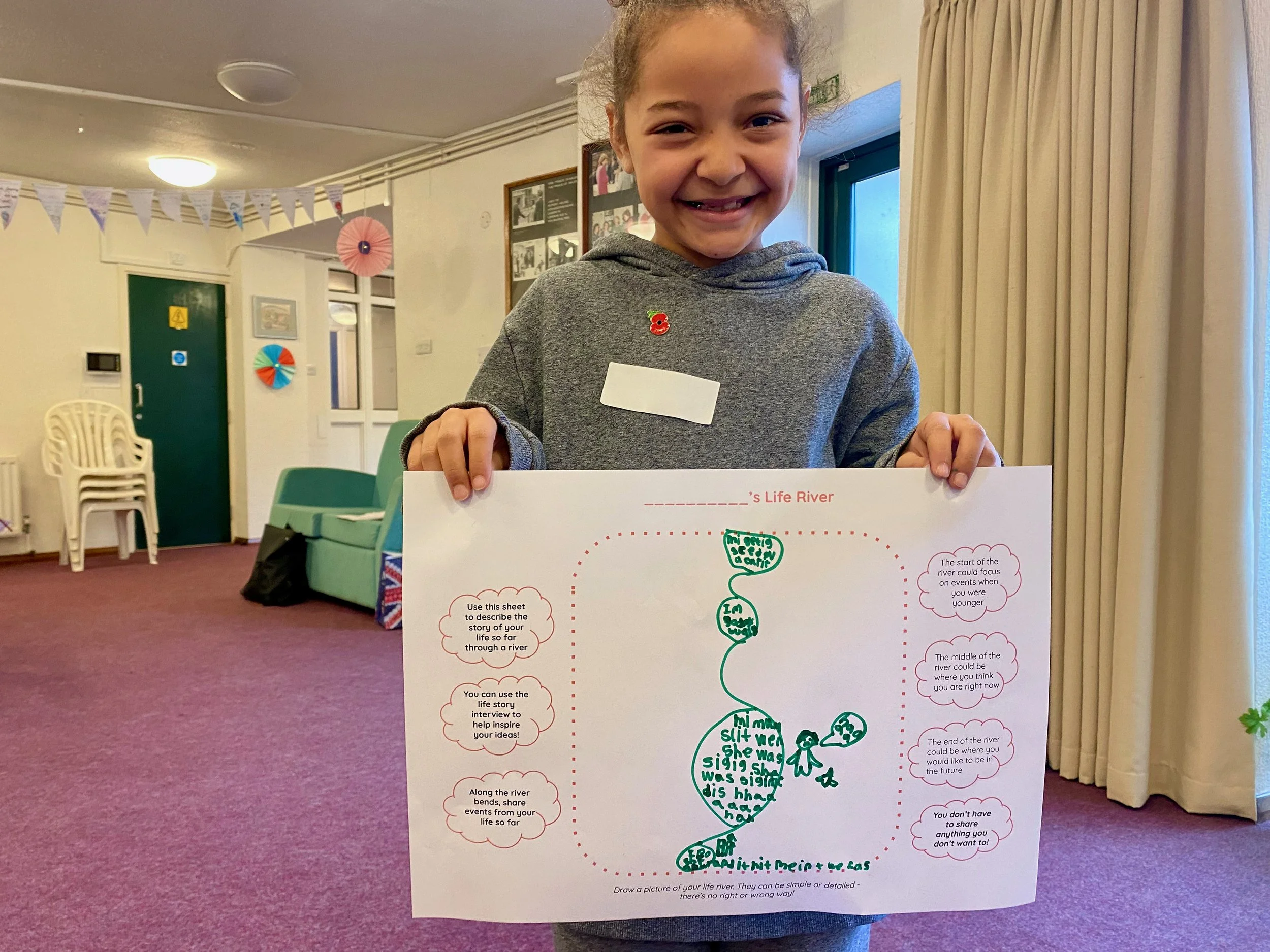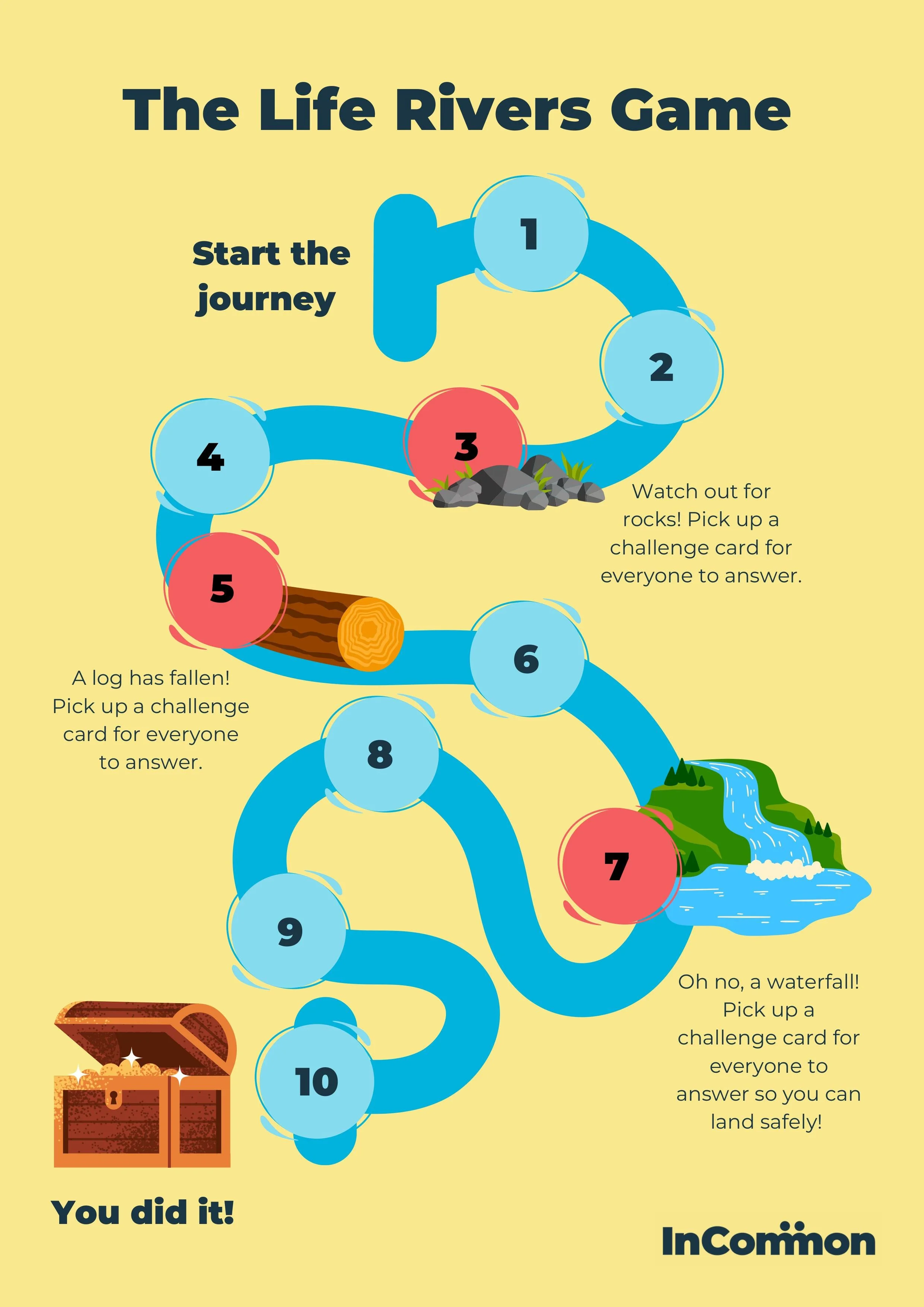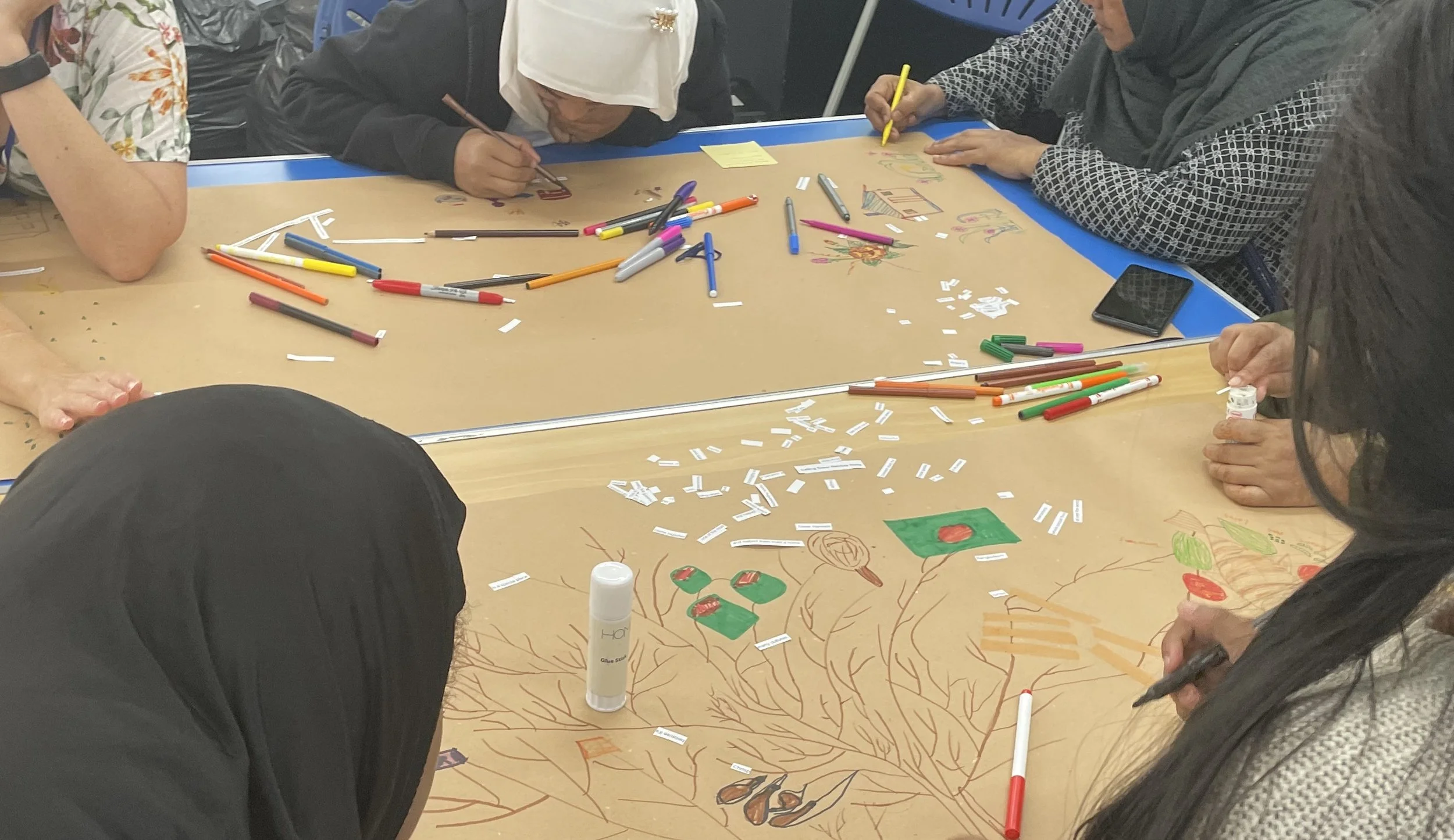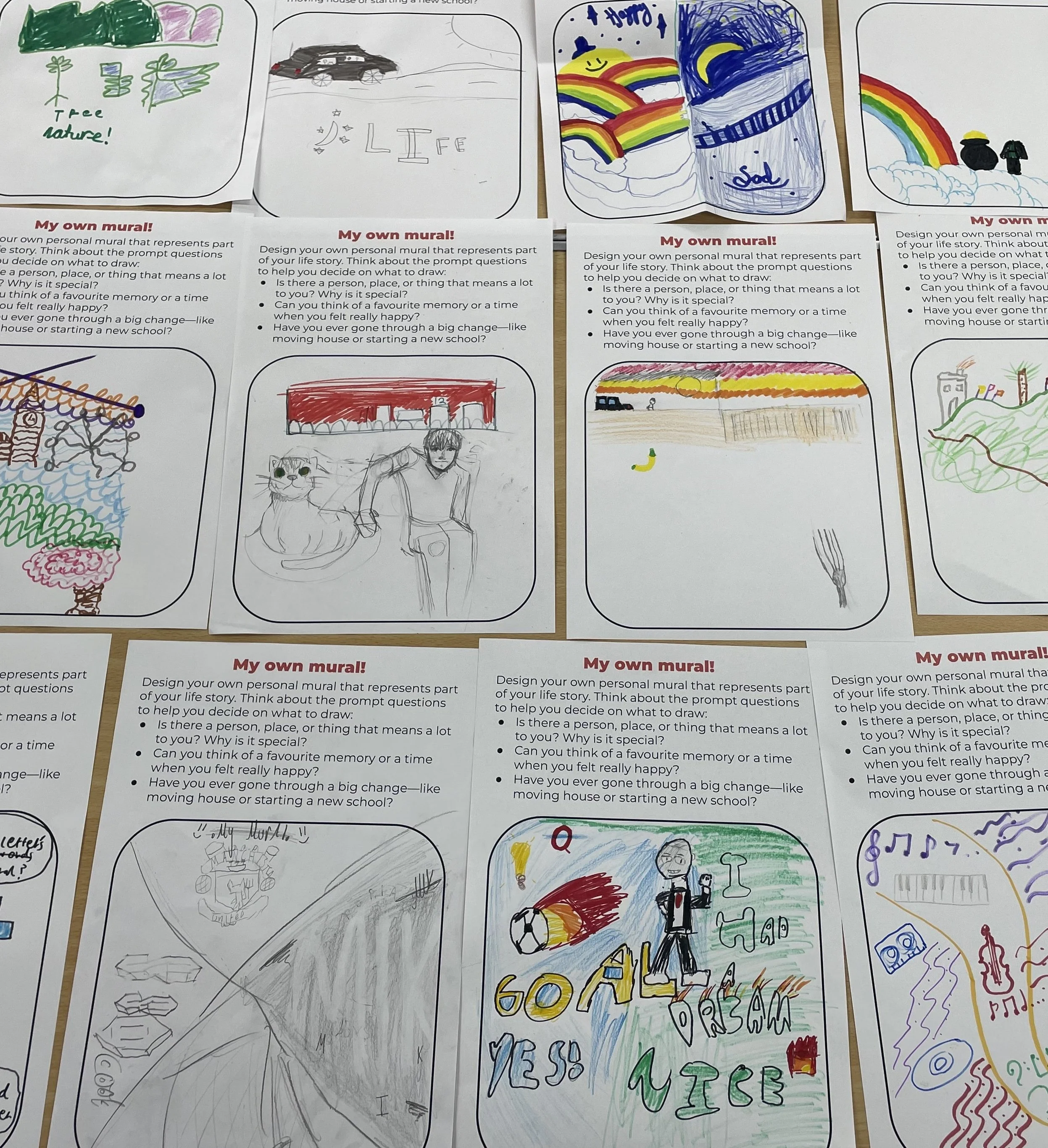InCommon has been working with Dr Helen Kingstone (Senior Lecturer in English Literature at Royal Holloway, University of London) to explore how to bring more story-sharing and life-history approaches into our workshops and programmes. This aims to help older and younger people deepen their understanding of one another and therefore their friendships. It also creates space, alongside celebrating what we have in common, to recognise how historical and social changes affect who we are.
Helen’s historical and literary research examines how generations have related to one another in the past. She has found that over the past two centuries, an emphasis on family generations has shifted towards emphasis on peer group generations, so intergenerational practice can help to weave the two dimensions together. Helen’s work is founded on the principle that we all need narratives – overarching stories – to make sense of our lives. Her research also shows that concepts like generation help us to see how our lives and lifetimes are part of a longer story.
To understand InCommon’s practice, in 2023 Helen volunteered on several programmes in different areas of London. She was delighted by the supportive, scaffolded design of InCommon’s workshops. She reflected that the intergenerational groups could benefit from further activities to access the richness of each other’s memories and life stories. When children are put on the spot to ask older people a question about their life, curiosity can sometimes retreat into “What’s your favourite… food/sport/dinosaur?!”
Helen and the InCommon team began by designing one new workshop session, which showed how transformative narrative methods can be. In November 2023 we piloted a “life rivers” workshop for the Connect programme, which began with life-story interviewing, and then asked each person: “draw the story of your life in the shape of a river!” We found this helped deepen intergenerational relationships. Children said it showed them that older people “have been through difficult times but then we return back to normal”, helping to foster resilience. Older people commented that “this allowed the children to talk about death and difficult changes in their lives”, and that “we could share our childhoods with each other, despite the age difference’.
A young participant holding up a drawing of their life river.
For 2024, we developed a Life Rivers board game. In this version, the intergenerational group travels along the river of life, watching out for rapids and waterfalls. At each stop, the group picks up a question card and everyone takes turns to answer. Examples include “Tell us about a memory from when you were little”, “When was the last time you were surprised?” and “What advice do you have for someone younger than you?”. One child said that playing the game “was hard and easy at the same time – we had to think, but then we found we already knew the answer!” Older volunteers said that “the quiet children came out of their shell”, and that “I can find it intimidating talking to the children, but the questions made it much easier.”
The Life Rivers Board game
In 2025, InCommon and Helen secured matched funding from the Ocean Regeneration Trust and Royal Holloway to design a programme called “Shared Stories”, working with creative writer and teacher Emma Jenkins. Across six monthly workshops for school children and older people local to the Ocean Estate in Stepney, we explored the benefits of sharing life stories through different activities. These included:
playing the Life Rivers game,
taking it in turns to interview each other about our life stories,
writing “cut-up poetry” from a collage of cut-up articles about the local area and its history,
exploring local murals and drawing murals of our own lives,
listening to each other’s experiences of change, and then drawing them to make a shared mural.
Writing “cut-up” poetry.
The ‘Shared Stories’ programme has highlighted the value of going beyond the now. Sharing memories has enabled children and older people to appreciate each other’s experiences that go beyond initial expectations.
We’ve found it most effective to combine talking and drawing, words and pictures, to keep everyone engaged. The visual element to story-sharing has been particularly useful in an environment that is not only multi-generational, but multi-lingual as well. The group really enjoyed discussing East London’s murals, especially figuring out how murals tell stories through visual language. Then the group put those techniques into action in their own stories. The group also wrote their own poems from cut-up texts about the history of the school, Stepney, and Tower Hamlets. Using a communal bank of words, they described what “home” means to them as individuals.
Preparation time beforehand in class helped the children to reflect on complex questions about past and future, including “What do you think your adult life will be like?” and “How have your thoughts about that changed since you were younger?” Children chose to ask the older volunteers questions including “What was your biggest mistake? (So others don’t make the same!)”, and “Who or what inspired you to do what you’re doing now?”
Worksheets from designing murals together.
The programme aimed to give children and older volunteers opportunities to explore what they had in common, to feel proud of where they live, and to build confidence in sharing stories with others. This confidence grew notably, from 42% of the group expressing confidence at the beginning, to 80% by the end. Group members particularly appreciated engaging with their local area and their part in the community. And one older volunteer said he felt more confident in the future thanks to knowing the young people who will be shaping it. A lot of common ground was established, including love of travel, faith, food, and football!
We are drawing on these workshops to design a “Shared Stories” scheme of work and resources for our Empower platform, for use by other intergenerational programmes and projects.

